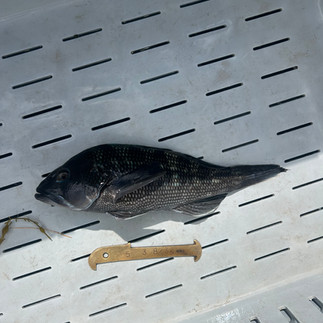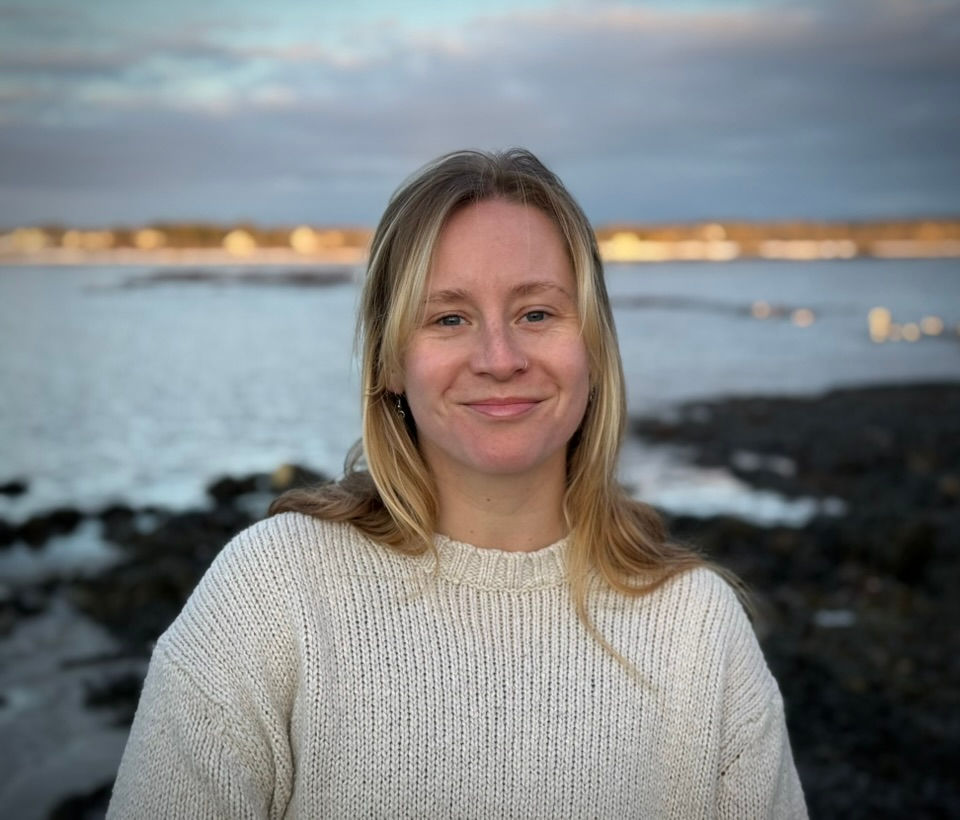Fishermen & Scientists Collaborate to Better Understand Black Sea Bass
- Kat Libby

- Aug 1, 2025
- 3 min read
Updated: Aug 27, 2025
Written by Hazel Johnson, MCFA Summer Intern
This summer brings the start of a collaborative science project with Maine’s fishermen, which will gather data to support fishermen’s anecdotal reports of black sea bass presence in Maine. MCFA is pleased to partner with our friends at Manomet on this project, as well as an advisory group of Maine lobstermen and a recreational fisherman.
Black sea bass are temperate reef fish whose northern spawning stock migrates north and inshore in the spring. This fish is a generalist carnivore, feeding on small invertebrates and other fish species. Recently, there has been a northward expansion of the stock biomass, associated with warming ocean temperatures in the southern Gulf of Maine. New England fishermen have noticed this overall increase in abundance, particularly in the past decade, enough to suggest that Maine may be able to sustain a future commercial fishery for black sea bass.
Yet there is little formal data to back up these fishermen’s reports. The state’s inshore trawl survey sees little evidence of abundance for this species, likely due to the bass's preference for structured, rocky habitats that a trawler would avoid. This creates an opportunity for fishermen who work in these locations to collect and share data that the state assessment misses.
Black sea bass commercial and recreational fishing outside of Maine utilizes trawls, pots/traps, and hooks and lines. The current fishery in Maine restricts commercial fishermen to hook and line and requires a larger size limit than other East Coast states. More data, collected in areas where black sea bass likely congregate, could help grow this fishery and provide another way for commercial fishermen to diversify their income.
Images provided by some of the fishermen in our early pilots of the tool: Obie Spear, Aran Johnson, David Johnson, and Emily Coffin.
In mid-June, the advisory panel of three lobstermen and a recreational fisherman met with MCFA and Manomet staff to discuss this project and what data fishermen could contribute. The lobstermen discussed where they see black sea bass in the Gulf of Maine. Some locations and times of year were abnormal compared to scientists' reports of the fish’s migration, highlighting the importance of stakeholders' knowledge. We wanted the data collection tool to be short enough for fishermen to complete easily, but with adequate data to analyze and learn about the black sea bass stock in Maine. The advisory board’s feedback and input were essential in creating a useful, accessible, and intuitive tool for fishermen to contribute their findings.

Over the past couple of weeks, I created a poster as outreach material for the project (see right) and a StoryMap, providing a more detailed overview of the project and how to contribute data. I volunteered my grandfather, a commercial lobsterman, and brother, who has a student lobster license, to take pictures of any black sea bass they caught to test out the survey. From the pictures the advisory panel and other lobstermen sent in, I used the software ImageJ to determine the lengths of the black sea bass. Using a reference such as trap wire mesh, ruler, or lobster measure as the scale, I can measure the full length of the black sea bass.
The next steps of this project include outreach to encourage more fishermen to participate and promotion to incentivize participation. Future advisory panel meetings will ensure feedback from fishermen continues to be incorporated into the project. From the data, I will update the map (on the StoryMap) of catch locations, report the habitats they were found in, and share the average fish lengths. This data will be accessible to fishermen and available for future studies by scientists and fisheries management. The commercial black sea bass fishery in Maine will hopefully expand beyond hook and line if adequate fish numbers are recorded, providing a powerful incentive for fishermen to be a part of data collection.
If you're a fisherman interested in participating, let us know! Email Mary Hudson at mary@mainecoastfishermen.org. We want your pictures of black sea bass and other strange or emerging species off the coast of Maine.











Comments